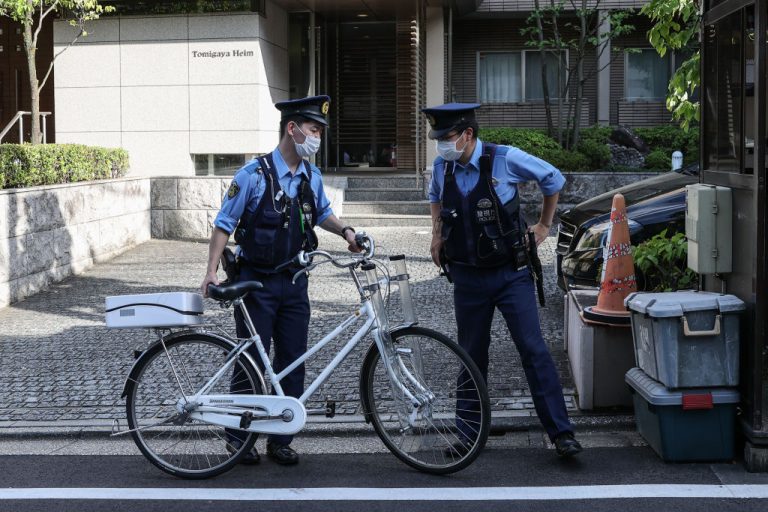New revisions to Japan’s Penal Code came into effect that will see those who insult others on the Internet punished by up to a year in prison.
A July 7 article by Kyodo News on the development reveals that online insults were already punishable by imprisonment.
However, the new revisions to the Penal Code not only increased the maximum penalty from 30 days to 1 year in jail, but fines exploded from under 10,000 yen (about US$72 USD approx.) to up to 300,000 yen (about US$2,184).
The expanded regulations came after the prominent tragedy of Hana Kimura, a wrestler and reality television star who killed herself in 2022 following a period of online bullying.
MORE ON CENTRAL GOVERNMENT OVERREACH
- New UK and EU Cars to Be Equipped With AI Speed Surveillance and Intervention Devices Starting in July
- Forget Vaccine Passports – UK Government to ‘Monitor Family Supermarket Spending’ in Social Credit-Style Anti-Obesity Campaign
- In Silencing Conservative Voices, Big Tech Takes the Chinese Communist Path
Additionally, the statute of limitations on online insults has been tripled from one year to three years.
Success
You are now signed up for our newsletter
Success
Check your email to complete sign up
Kyodo says the revisions were pushed through the Japanese legislature by the ruling Liberal Democratic Party just weeks ago on June 13.
Fortunately, the law comes with a stipulation “that a review will be conducted…to determine if it unfairly restricts free speech,” Kyodo reported.
However, that review will not take effect until the later part of three years from now.
Justice Minister Yoshihisa Furukawa characterized the censorship as necessary because “acts as a deterrent,” does not serve as “an unjustified restriction on freedom of expression,” and “demonstrates the legal assessment that (cyberbullying) is a crime that should be severely dealt with.”
June 14 reporting by CNN paraphrased a Japanese Justice Department spokesperson as clarifying that “insults” is defined in the country’s Penal Code as “publicly demeaning someone’s social standing without referring to specific facts about them or a specific action.”
Japan’s legal system also considers defamation, defined as “publicly demeaning someone while pointing to specific facts,” a criminal offense, the article stated.
A global problem
The trend is not limited to Japan. In late June, reports out of the UK brought to light the widespread practice of police micromanaging citizens through the launching of “non-crime hate incident” investigations into petty squabbles.
Although the incidents have no legal penalty to them, they do appear on criminal record checks for six years and have no right of appeal.
For example, a non-crime hate incident was launched against an unknown individual after an 11-year boy was called “shorty” and “leprechaun” in public.
And there’s also the recent case of a March campaign by German police that saw law enforcement raid the homes of more than 100 citizens during a “joint day of action” because they criticized the government on the Internet.
The sting was conducted after the government upgraded Section 188 of the Criminal Code to consider “insults, slander, and defamation of people in political life” to be “particularly punishable.”
State police bureaus were quoted as flexing at the time that, “Public officials and elected representatives are given special criminal protection under [Section]188 StGB, regardless of the political level, against hate postings.”
While the President of the Federal Criminal Police Office said in a statement in support of the crackdown, “With the day of action, we are making it clear: Anyone who posts hate messages must expect the police to be at the door afterward.”
Propaganda glorifying state sanctioned censorship of speech has also emerged. In early May, the Associated Press published a video to YouTube chronicling how the Armed Forces of Ukraine stormed the house of a man who posted messages supporting Russia on social media.
The video was called Ukraine Hunts Down ‘Traitors’ Helping Russia and completely glossed over a well documented form of domestic terrorism conducted against citizens who don’t toe the line in the form of taping them to telephone poles with their genitals exposed during public beatings.
In mid-June, the Biden administration announced its wish to crackdown on anyone who dissents online on the topic of the cost of so-called “green” or “renewable” energy sources such as wind, solar, and biomass.
White House National Climate Advisor Gina McCarthy made such statements during a June 9 propaganda segment hosted by Axios dubbed The Infodemic Age.
McCarthy said in reference to the topic of “misinformation” that, “We have to get tighter. We have to get better at communicating…And frankly, the tech companies have to stop allowing specific individuals over and over again to spread disinformation.”
McCarthy blamed opinions that differed from the central government’s on the veracity and viability of the ESG policy as stemming from “dark money” from fossil fuel companies who are “still basically trying their best to make sure that people don’t understand the challenge of climate.”

















